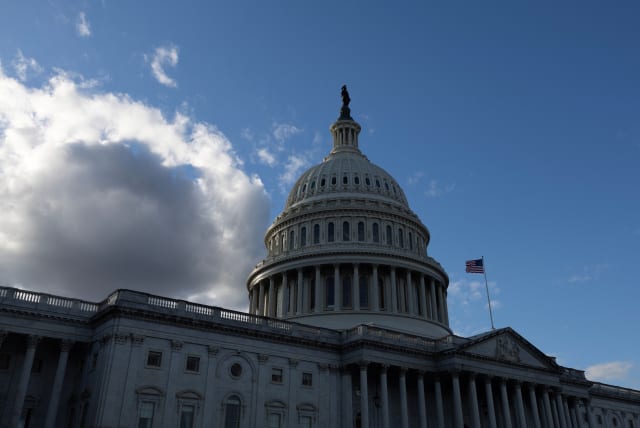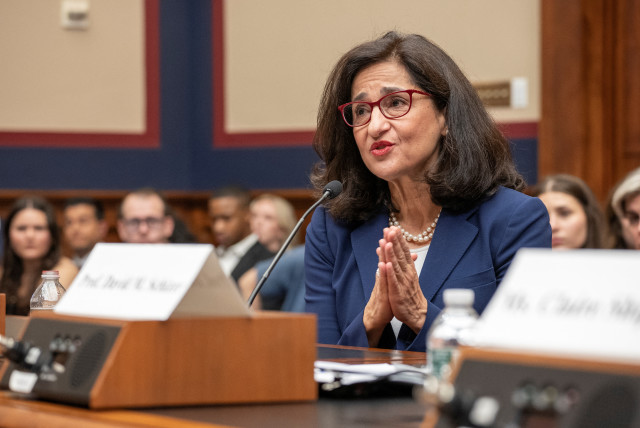Public school leaders grilled over handling of antisemitism in classrooms in Capitol Hill hearing

Previous hearings held by the House Committee on Education and the Workforce have sparked transformations in the national campus landscape.
Leaders from three of the country’s largest public school districts testified Wednesday morning on Capitol Hill in a contentious hearing on antisemitism, before the House Committee on Education and the Workforce.
Hearings held by the committee have sparked transformations in the national campus landscape in the past. A December hearing, in which three elite university presidents declined to determine whether calls for the genocide of Jews violated school rules, led two of them to resign. Last month, a tent protest timed to the testimony of Columbia University’s president launched a controversial nationwide movement, widespread unrest, and arrests on dozens of campuses.
David Banks, chancellor of New York City’s public school system was joined by Berkeley Unified Schools Superintendent Enikia Ford Morthel and Montgomery County School Board President Karla Silvestre.Also testifying was Emerson Sykes, a senior staff attorney with the American Civil Liberties Union, whose focus includes First Amendment speech protections.
Each of these district leaders faced mounting scrutiny over their handling of antisemitic incidents – by both students and staff – in the wake of October 7, incidents that have made national headlines.
In their testimonies, the leaders spoke of their respective district’s efforts to increase antisemitism and Holocaust education for students and staff, and actions they’ve taken to discipline those found to have committed antisemitic incidents.
NYC schools
New York City’s public schools – the largest school district in the country, which educates nearly a million students across the five boroughs – have been roiled by allegations of antisemitism and are already under investigation by the US Department of Education.
According to a complaint filed with the Department of Education Office of Civil Rights, Berkeley Unified School District (BUSD) has knowingly allowed its K-12 campuses to become viciously hostile environments for Jewish and Israeli students.
Reported incidents of antisemitism in BUSD schools included school walkouts praising Hamas, and students shouting “f*** the Jews and KKK.” The complaint said following their teacher’s lead, students bullied their Jewish peers and derided their physical appearance.
The complaint alleged BUSD has done nothing to address or curtail the hostile environments in its schools.
The Department of Education opened an investigation into Montgomery County Public Schools – a populous and diverse suburban Maryland school district just outside Washington, DC – in February, after a complaint alleged administrators condoned a pro-Palestinian walkout laced with antisemitic chants and some educators said the October 7 attacks were fabricated.
“Let me be clear, we do not shy away from imposing consequences for hate-based behavior, including antisemitism,” Silvestre said in her testimony.
Silvestre said it is the district’s policy to initiate an investigation each time the school system receives a complaint, or particular antisemitic, hateful, or racist language or actions are witnessed.
During Wednesday’s hearing, Banks was grilled relentlessly over his response to students at Origins High School in Brooklyn who allegedly made Nazi gestures at Jewish boys in a park and expressed admiration for Hitler.
The principal of Origins High School was removed from his position but is still employed by the district, a point that Republican committee members continuously raised in their questioning of Banks.
Banks acknowledged the diversity of the New York City school system means that classrooms are not insulated from the global stage.
Banks spoke of education initiatives the district has taken to increase education on the Holocaust, Jewish culture, and hate crimes as well as expanding antisemitism resources and workshops.
The ultimate answer for antisemitism is to teach, to expose young people to our common humanity,” Banks said.
Banks accused some members of the committee of being more interested in “gotcha” moments than actually solving the problems.
“This for too many people across America and education feels like the ultimate ‘gotcha’ moment,” Banks said. “It doesn’t sound like people who are actually trying to solve for something that I believe we should be doing everything we can to solve for.”
Luke Tess/JTA contributed to this report.
Jerusalem Post Store
`; document.getElementById("linkPremium").innerHTML = cont; var divWithLink = document.getElementById("premium-link"); if (divWithLink !== null && divWithLink !== 'undefined') { divWithLink.style.border = "solid 1px #cb0f3e"; divWithLink.style.textAlign = "center"; divWithLink.style.marginBottom = "15px"; divWithLink.style.marginTop = "15px"; divWithLink.style.width = "100%"; divWithLink.style.backgroundColor = "#122952"; divWithLink.style.color = "#ffffff"; divWithLink.style.lineHeight = "1.5"; } } (function (v, i) { });

